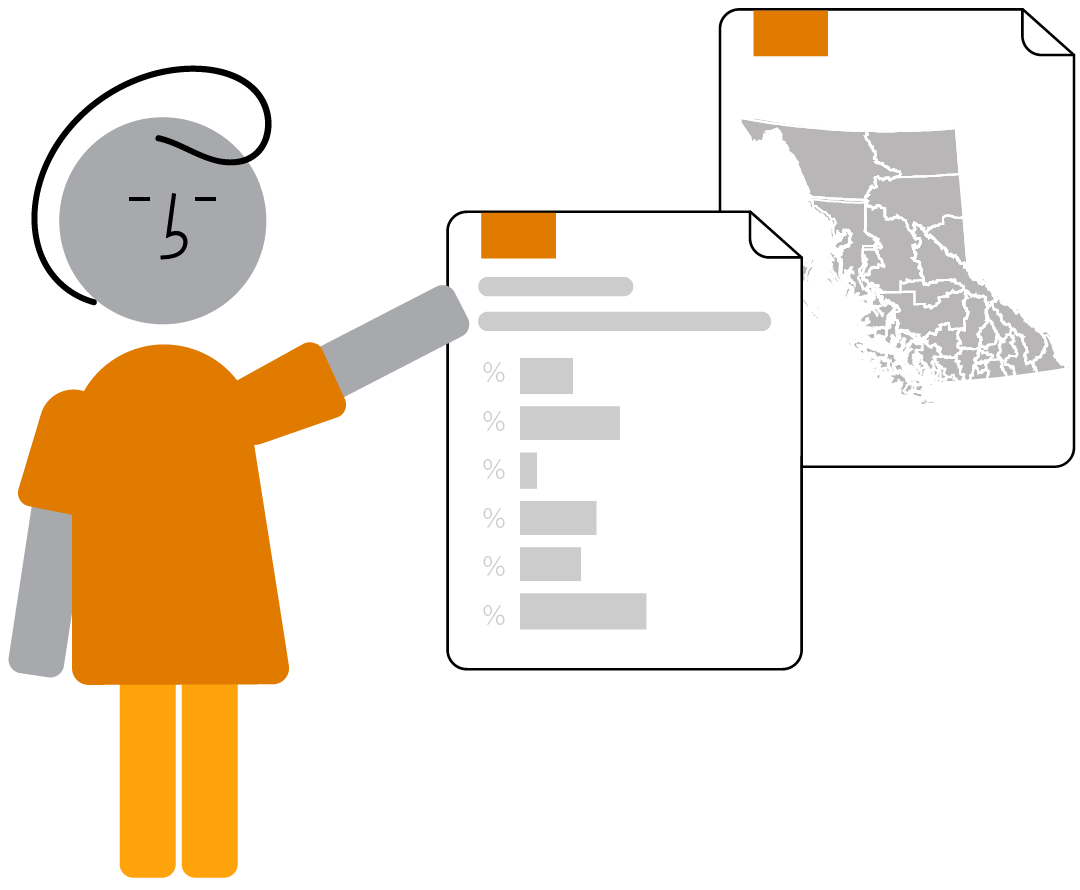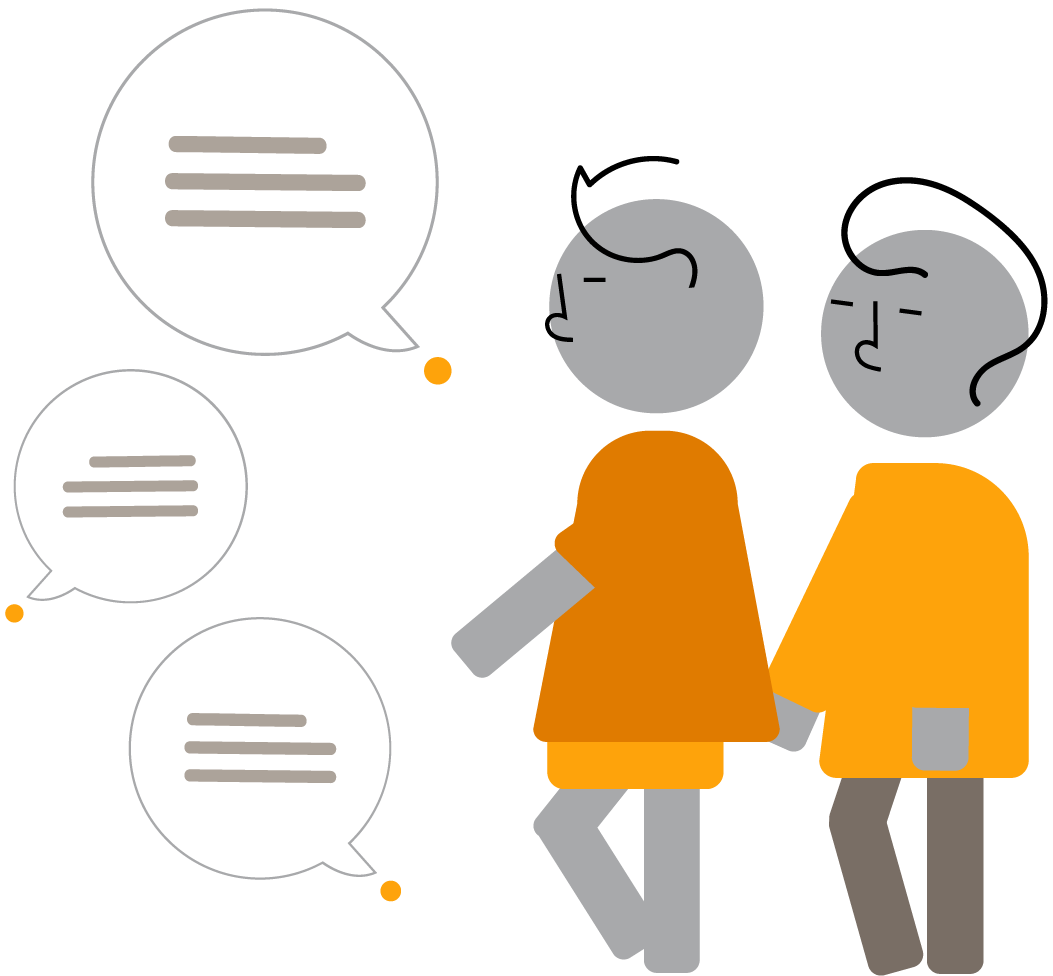
The Middle Years Development Instrument: Parent/Caregiver Info

The MDI includes questions about children's well-being and experiences, providing important information to help schools and communities.
Made in BC
The MDI was developed at UBC in collaboration with researchers, educators, community groups, parents and children and has been used since 2009.
Whole Child
Provides information about the well-being, health, and assets of children.
Children's Voices
Completed online during class time by children in Grades 4 through 8
Strengths-Based
Focuses on strengths, assets, resilience and well-being.
Trends and Patterns
Used to measure trends and patterns at the population-level, not for individual assessment.
MDI is Voluntary
School administrators, teachers, parents/guardians, and children themselves are all able to choose whether or not to participate.

What is the MDI?
The Middle Years Development Instrument (MDI) is a questionnaire for children in Grades 4 through 8. It asks children about their thoughts, feelings and experiences inside and outside of school. The MDI is not used to assess a child individually, but to understand how groups of children are doing in areas of their life related to social and emotional well-being, health and academic achievement.
The information collected helps schools, communities and governments understand children’s health and well-being during middle childhood. For more information, see our MDI Info Sheet or check the Frequently Asked Questions section below.
This webpage includes information about the MDI project in BC, YK and NWT, if you are from Ontario, please reach out to your school board directly with questions.
Why is the MDI Important?
The middle years – between the ages of 9 to 13 – is an important transitional time in development. Children experience changes in how they think, in their physical development, and in how they feel and connect to others. These changes set the stage for adolescence and adulthood. Research shows that what happens in the middle years affects a child’s ability to concentrate and learn, develop and maintain positive peer and adult relationships, and make responsible decisions. For more information, visit Discover MDI.

Have a quick question about the MDI? Visit our FREQUENTLY ASKED QUESTIONS section.
Children’s Voices Matter
Children’s voices matter. The MDI gives children a chance to share their perspectives and their experiences inside and outside of school. This information can be used by schools, governments and communities to create environments that help children thrive. By asking these questions to children, they can feel valued and that they are contributing to making their schools and communities more supportive.
The MDI is aligned with Article 12 of the United Nations Convention on the Rights of the Child that states ‘‘children are full-fledged persons who have the right to express their views in all matters affecting them and requires that those views be heard and given due weight in accordance with the child’s age and maturity.’’
Participating in the MDI is safe
Children’s individual responses to the questions are private and confidential. Before they answer the questions, children learn that their responses will not be shared with school staff, their friends or their family. The responses of children within a school are combined and shared with school administrators. MDI School District and Community reports and the MDI Data Dashboard are available on our MDI Reports page.
MDI Informed Passive Consent Letters
Rather than opting-in to the project, you are informed of the MDI project and use of information, and provided the option to withdraw your child or opt-out. Letters are sent home from the school at least 2 weeks before the children are invited to complete the questionnaire.
These letters are available in 12 languages and provide detailed information about the MDI project, including how the information is collected, that the information is confidential, how the information is stored, and how the information is reported.
You can opt out by returning the withdrawal slip to your child’s school, or by emailing us at mdi@help.ubc.ca to remove your child from the project. The MDI project receives annual approval through the UBC research ethics board.
Our FAQ section and video overview may help answer some common questions parents/caregivers might have about informed passive consent. We also have resources available, such as the MDI Questions Brief and Parent Info Sheet with more information.
If you have further questions, we encourage you to contact us directly.

Frequently Asked Questions
Yes. We encourage parents/guardians to view the Grade 4-5 and Grade 6-8 MDI questionnaires prior to survey implementation. The questionnaires are released each year in the fall and then removed for updates after survey implementation.
Some parents/guardians and caregivers use questions from the MDI to help guide conversations about their child’s feelings and experiences in school and in the community. Some of the questions on the MDI might be on topics that are new to children and therefore might cause them to ask their parents/guardians or teachers questions about these topics. To provide more information and background about the kinds of questions that are on the MDI we have also created an MDI Questions Brief.
The MDI is not an individual assessment tool. Your child’s individual responses are private and confidential. Children are made aware that their responses will not be shared with school staff, their friends or their family.
Participating children’s responses are combined into reports for each school and shared directly with school administrators. We recommend following up with your school principal or Parent Advisory Committee to access your school-level results. Community and neighbourhood level results are publicly available and can be viewed on our MDI Reports Page.
The MDI project uses informed passive consent. With informed passive consent, parents/guardians are fully informed of the nature of the MDI project and the use of the information but are not required to actively complete a consent form. Instead, parents/guardians complete a withdrawal form should they not want their child to participate.
The MDI project aims to understand where systematic differences in well-being and healthy development occur, which requires data that are representative of the whole population in communities and the use of passive consent.
HELP has undertaken an in-depth review of the informed passive consent approach and found that this method can be used as long as parents/guardians have sufficient time to decline participation; translations of consent forms are available in languages representative of the parent/guardian population; children are informed of their research rights; and confidentiality of children’s responses are maintained. Also, informed passive consent is used because the project is considered low risk, provides beneficial community information, and it is emphasized to the children that they are not required to participate, nor to answer all of the questions. To learn more about the use of informed passive consent, please contact privacy@help.ubc.ca.
To ensure personal information is secure, the Human Early Learning Partnership has strong measures in place and follows all rules, agreements, practices, and legislation for safeguarding data. To learn more about HELP data protection and the Five Safes’ framework for HELP research, please visit our Safeguarding Data page.
HELP follows the highest standards available, many of which are required by law. To ensure the privacy and confidentiality of individuals, all of HELP’s systems and processes meet or exceed the requirements of provincial and federal privacy legislation.
The MDI questionnaire takes one to two class periods to complete. Completion time is dependent on the grade and reading level of the children. For example, children in Grade 4 may take 60 minutes to complete the questions. Older children may take less time.
The MDI measures aspects of children’s social and emotional development and well-being that align with the BC Ministry of Education’s K-12 curriculum, which includes a focus on promoting children’s personal and social competencies. District and school administration teams across the province choose to participate because they find the information invaluable. There are numerous examples of how the information collected has been used by in schools and communities, including decisions about after-school programming and recreational activities for children. Visit discovermdi.ca to learn more!
The MDI goes beyond academics and offers a view of the whole child. For example, in BC, the only information that exists at a large-scale level about children is the information obtained from the Foundational Skills Assessment (FSA). The FSA focuses on reading, writing and numeracy skills. In contrast, the MDI uses a strengths-based approach to assess five dimensions of child development that are scientifically linked to social and emotional well-being, health, academic achievement, and overall success through school and life.
Grades 4 to 8 are important transitional times in a child’s development with many cognitive and social and emotional changes. Experiences in the middle years, especially between the ages of 10 to 13, have critical and long-lasting effects. They are powerful predictors of adolescent adjustment and future success. By focusing on children in Grades 4 to 8, we can learn more about the factors that can make a meaningful difference in children’s lives.
Research has found that responses from children in Grade 4 and above are as reliable and valid as responses from adults. More importantly, children’s voices matter. One of the core beliefs of the MDI is that children’s voices deserve to be heard. Asking children for their input is valuable because it provides us all – researchers, educators, parents/guardians and policy-makers – with important information on child well-being that we cannot otherwise access. It is also powerful because it tells children that we value their thoughts and feelings and gives them a say in how their schools and communities make changes to support them.
At HELP, our goal is to include all children in the study, giving every child a voice. To this end, the survey experience has been designed with children in mind. It is done online, so the majority of questions can be answered with the click of a mouse. A few questions provide a space to type a single letter or a 1 to 2 word response. We have also included a text-to-speech function that reads questions aloud, if needed. We also recommend schools provide additional support to children who may need it. We encourage parents/guardians to contact their child’s teacher to discuss how the child can be best supported in completing the MDI questionnaire. Please contact us if you have additional questions.
Schools use their school-level information to evaluate and inform school-based goals and initiatives that support children’s well-being. Community organizations use community-level MDI results to inform planning for programs for children in the middle years. These are just two general examples. We encourage you to ask your school principal how they plan to use the MDI results.
The information collected from the MDI is used to create comprehensive reports that are shared with educators, families, researchers and policy-makers across BC and the country, making a difference in the lives of children by informing policy and practice. By asking children to tell us about their daily habits, feelings, relationships and environments, we honour their voices and enable them to work with the grownups in supporting their development. Please visit Discover MDI to read some of the school and community stories.
Key MDI Contacts

Eva Oberle
Associate Professor, UBC

Maddison Spenrath
Director, Core Projects (On Leave)

Marit Gilbert
Implementation Manager

